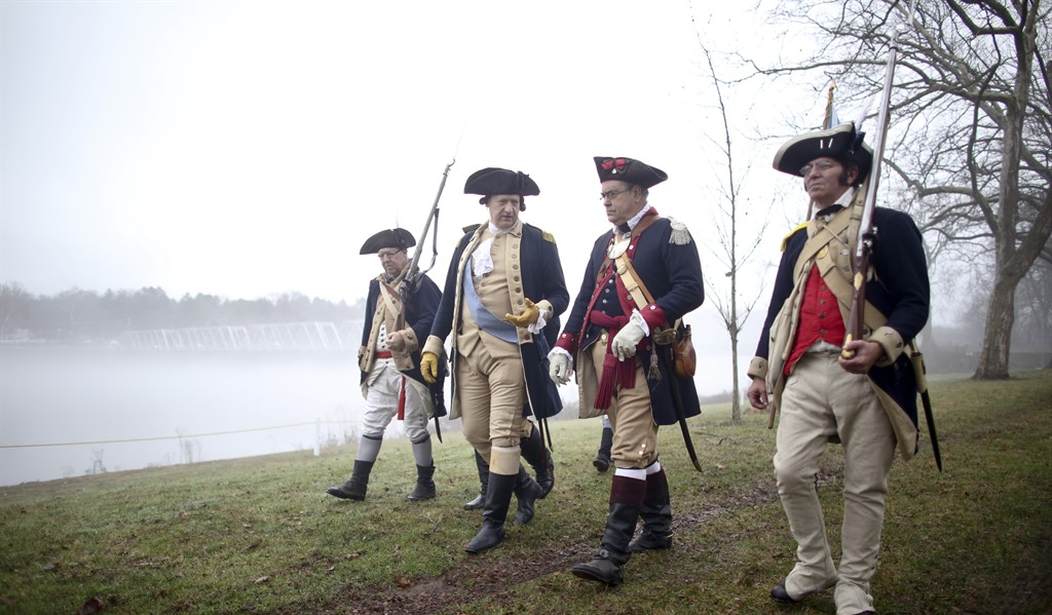WASHINGTON -- Walk toward Anderson House on Massachusetts Avenue, just off Dupont Circle, and the first thing you see is a remarkable bronze of George Washington guarding the entryway.
Walk inside and your breath will be nearly taken away by the opulent beauty and all the splendor of the Gilded Age.
This was once the winter home of American diplomat Larz Anderson. His wife, Isabel Weld Perkins Anderson, donated their Beaux Arts mansion and much of its furnishings to The Society of the Cincinnati in 1938 to serve as their headquarters.
Anderson was a member of the patriotic hereditary society formed in 1783 by Gen. Henry Knox and other officers who served in the Revolutionary War. Its purpose remains to perpetuate the memory of the War for Independence, remind citizens to remain vigilant in the defense of their liberties and keep alive the memory of the virtuous sacrifices that secured those liberties.
To be a member, you have to have descended from an officer who served in that war. Anderson was the great-grandson of Lt. Richard Clough Anderson Sr.
Despite the opulence of the grand hall, the elegant foyers, the Flemish tapestries, imported marble floors, French furniture and Asian ivories, the image that stayed with me throughout the entire tour was the haunting portrait of Joseph Winters in the "America's First Veterans" exhibition.
The portrait was done over 40 years after the Revolutionary War when artist John Neagle stumbled upon an old, near-naked man huddled in the snow in a Philadelphia alley.
Recommended
"I found him much benumbed with cold and scantily clad," Neagle wrote in his diary. "His outer dress was ragged -- His flannel and coat scarcely covered his naked body and he had an apology for a shirt -- all were in rags and strings."
Neagle took the man home with him, fed him and, discovering that he only spoke German, brought back the local grocer to help translate his story. Winters had immigrated from Germany, was a weaver by trade and had outlived his wife and two children.
Then his story took a profound twist. The elderly homeless man had served in the Revolutionary War and told Neagle he had "fought very hard to establish the liberties of our country."
Neagle wrote that Winters became "a lone wanderer in a world evincing but little feeling or sympathy for him." Neagle would eventually paint his portrait, capturing all of the appalling sadness of how quickly society and government forget those who served when it becomes convenient.
Less than one-half of 1% of Americans currently serve in our armed forces, making them nearly invisible to most of us in our daily lives despite their call to serve all of us every waking hour of their lives.
Politicians sometimes use them to rally around or as a political wedge issue. Their service often takes more from them than any of us ever give, costing them marriages, friendships, life, limb or mind.
They become the lone wanderers among us who we don't see until tragedy strikes or someone publicly dismisses them. This isn't something of yesteryear. It happened yesterday when Capitol Police asked National Guard troops to move out of the congressional buildings and into garages.
They had little access to bathroom facilities and had cramped conditions that could be perilous during the COVID-19 pandemic.
While the reaction across Washington and both sides of the aisle was outrage, someone made that decision, and someone with power found them disposable.
Let's be clear here: The men and women in our National Guard are tough; they can handle and have handled worse than sleeping on a cold garage floor when it is 38 degrees out. The outrage here lies not in the deed but in the dismissal -- the lack of respect for their fulfillment of duty.
It is a dismissive attitude many in our society have carried too long through too many generations.
Winters disappeared into the night after Neagle captured his old face fixed in sadness and fatigue. No record remains of where he spent his last days.
The elegant bronze of Washington has been removed from its graceful sentry outside the Anderson House. The receptionist confirmed it was a preventive measure in reaction to the riots and statue destruction that raged across the district last summer.
The "Lone Wanderer" will still be on exhibition when Anderson House opens at the end of March. It is an extraordinary hall where dignitaries such as former British Prime Minister Winston Churchill and former President Ronald Reagan met with the descendants of the officers who led an often-ragtag Army filled with brave men like Winters, who, despite not knowing the language and having not lived here very long, found liberty a cause worth defending.
It is worth a visit, just as a reminder of why we should never forget.
Salena Zito is a CNN political analyst, and a staff reporter and columnist for the Washington Examiner. She reaches the Everyman and Everywoman through shoe-leather journalism, traveling from Main Street to the beltway and all places in between.

























Join the conversation as a VIP Member